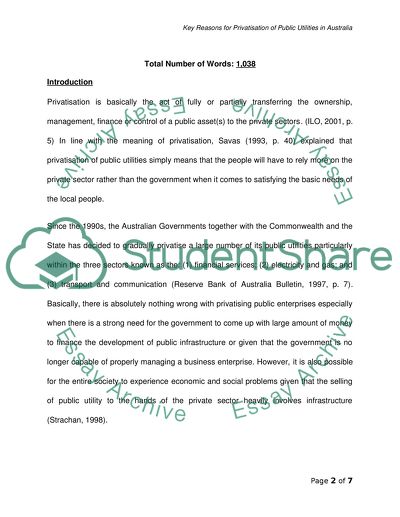Cite this document
(“Identify the key reasons for privatisation of public utilities or Essay - 1”, n.d.)
Identify the key reasons for privatisation of public utilities or Essay - 1. Retrieved from https://studentshare.org/miscellaneous/1556286-identify-the-key-reasons-for-privatisation-of-public-utilities-or-institutions-and-discuss-the-likely-effects-in-australia
Identify the key reasons for privatisation of public utilities or Essay - 1. Retrieved from https://studentshare.org/miscellaneous/1556286-identify-the-key-reasons-for-privatisation-of-public-utilities-or-institutions-and-discuss-the-likely-effects-in-australia
(Identify the Key Reasons for Privatisation of Public Utilities or Essay - 1)
Identify the Key Reasons for Privatisation of Public Utilities or Essay - 1. https://studentshare.org/miscellaneous/1556286-identify-the-key-reasons-for-privatisation-of-public-utilities-or-institutions-and-discuss-the-likely-effects-in-australia.
Identify the Key Reasons for Privatisation of Public Utilities or Essay - 1. https://studentshare.org/miscellaneous/1556286-identify-the-key-reasons-for-privatisation-of-public-utilities-or-institutions-and-discuss-the-likely-effects-in-australia.
“Identify the Key Reasons for Privatisation of Public Utilities or Essay - 1”, n.d. https://studentshare.org/miscellaneous/1556286-identify-the-key-reasons-for-privatisation-of-public-utilities-or-institutions-and-discuss-the-likely-effects-in-australia.


